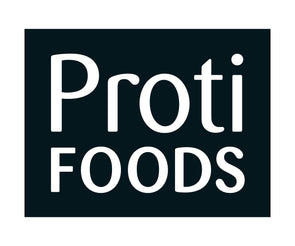
10 Common Signs You Need More Protein in Your Diet
Protein is a vital part of a healthy diet, but many people fail to consume enough on a daily basis. Between work, personal responsibilities, and other aspects of everyday life, it's challenging to keep track of your nutrient intake, making deficiencies all too common. In fact, an estimated one billion people worldwide suffer from inadequate protein intake.
But if you're not busting out the calculator and keeping track of the number of grams of protein you're eating daily, how do you know if you're eating enough? There are a few key signs to look for. Below, we're discussing the possible signs of a protein deficiency and how to ensure you are meeting your needs for optimum health. Let's take a look!
1. Mood Swings
The chemicals in your brain responsible for communicating information between cells are made up of amino acids, the building blocks of protein. If you are not eating enough of this nutrient, your brain won't have enough of these chemicals, which can disrupt your hormones and cause mood swings.
2. Thinning Hair
Our hair, nails, and skin are made up of proteins known as collagen and keratin. If you lack these proteins, you may start noticing dry, flaky skin, ridges on your fingernails, and (most alarming) brittle and thinning hair. Hair loss is one of the first signs that you may be deficient in protein.
3. Fatigue and Weakness
Did you know that within just a week of not eating enough protein, you may start feeling weak and fatigued? It's true – a lack of protein causes a decrease in muscle mass and, therefore, can affect your strength, balance, posture, activity levels, and slow your metabolism.

4. Hunger
Protein makes up one of the three components of your diet that provides energy. Along with calories and fat, protein helps fill you up and keep you feeling satisfied until your next meal. Without enough sources of protein, you will be left feeling hungry and may overeat, contributing to unwanted weight gain.
5. Slow-Healing Injuries
You may notice that your cuts and scrapes take longer to heal. Protein plays a major role in wound healing, and low protein levels may mean that your body is unable to make enough collagen to mend your injuries.

6. Loss of Muscle Mass
If you are exercising strenuously or weight lifting, you may require additional protein to support your increased muscle mass. Athletes need more protein than the average person (up to 1 gram per pound of body weight per day), so keep this in mind if you fit into this category.
7. Weakened Immune System
Protein plays a vital role in boosting your immune system, just as Vitamin C and Zinc do. If you find yourself getting sick more often than usual, a low protein intake may be to blame.
8. Craving Sugar and Carbs
Protein in foods takes longer to break down than simple carbs and sugars. Therefore, when you consume it regularly, you won't be left feeling hungry soon after meals. Sugar and carbs, on the other hand, spike your blood sugar, which can lead to intense cravings to stay energized throughout the day. By choosing high-protein foods instead, you can stave off your sweet tooth.

9. Trouble Concentrating
Are you having trouble staying focused? Do you feel like you're in a fog? While a lack of sleep, stress, and other things can be to blame, it's always a good idea to check your diet and make sure you're getting enough protein.
10. Swelling and Puffiness in the Body
Swelling, or edema, is caused by fluids being trapped in your body's tissues. This is commonly noticed in the feet and ankles and can be uncomfortable. Swelling is one of the most common signs of a severe protein deficiency, as the proteins that circulate in your blood prevent fluid build-up in your tissues.
Increase Your Protein Intake
If you notice any of the symptoms above, it's crucial to speak to your doctor first. A medical professional can help you evaluate your health and determine the true root of the issue. If your bloodwork or other evaluations identify a protein deficiency, you'll need to increase your daily protein intake.
How Much Protein Should You Eat in a Day?
The amount of protein you need each day varies based on factors such as age, sex, activity level, and overall health. For the average sedentary adult, the Recommended Dietary Allowance (RDA) is 0.8 grams of protein per kilogram of body weight. This translates to about 56 grams per day for a 70-kilogram (154-pound) person. For those who are physically active, particularly those who engage in regular strength training or endurance sports, protein needs can increase to 1.2 to 2.0 grams per kilogram of body weight to support muscle repair and growth.
Proti Foods offers a variety of protein-rich snacks, meals, drinks, and more to help you keep your nutrition on track. For more information about our products or how to increase your protein intake, contact us today!
